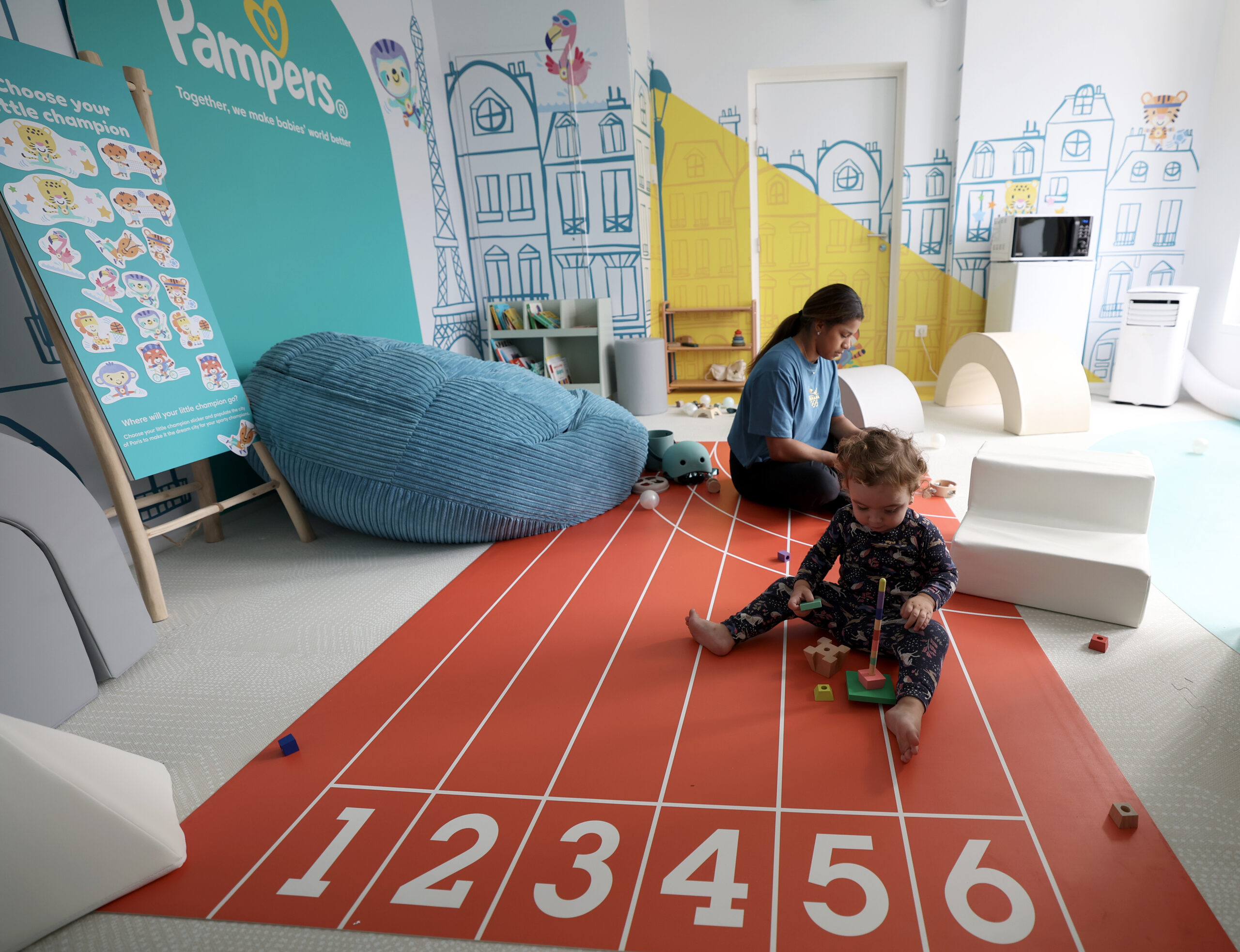While the Olympics are officially over, there are a few lessons to take from the 2024 Games. One is that Simone Biles is the G.O.A.T. Another is that Black girl magic is real and was on full display with teams like USA Gymnastics, the USWNT, U.S. Track & Field, U.S. women’s basketball. Lastly, the 2024 Olympics has proven the value of supporting moms.
For the first time in history, the International Olympic Committee (IOC) executive board and Paris 2024 allowed for a dedicated space for children. It’s not surprising that seven-time Olympic gold medalist maternal health advocate, Allyson Felix, is at the helm of the first-ever nursery at Olympic Village – in partnership with Pampers.
This comes after decades of women athletes having to make sacrifices like being away from their kids or not competing altogether. Here’s a look at how the 2024 Olympic Games were revolutionary for mom athletes and their families and what the business world can learn on how to better support moms.
Barriers to Moms Returning to Work
Whether you are an Olympic athlete, an executive in the C-Suite, or a manager in corporate America, affordable and accessible childcare is a universal barrier. Eighty two percent of moms under 30 say childcare is their primary reason for considering to leave the workforce. Fifty percent of stay-at-home moms point to the need for affordable childcare as the prerequisite for returning to or entering the workforce.
In the Olympic realm, more and more athletes have young children. This year, Naomi Osaka, Britney Griner, and Nada Hafez were just some of the new or expecting moms competing at the Olympics. Also, more mom athletes are continuing their careers soon after giving birth. This mirrors women returning to work after childbirth in the corporate world. The needs are identical: more support, increased financial backing, and greater flexibility.
Previously, when Olympic athletes became new moms, it might have meant an abrupt stop to breastfeeding a newborn or separation from your little one for the first time. Just like in corporate America, many athletes were often forced to choose between returning to their career and caring for their child.
What the Olympic Nursery Showed the World
Support for new moms in the workplace and maternity leave varies around the world, but it is clear that quality care for moms matters. The 2024 Olympics amplified this message with a nursery perfectly situated at the center of this year’s Olympic Village for moms competing in the Games. This gave Olympian moms and dads the necessary support to compete while caring for their children, feeding their babies, and bonding.
“It’s childcare; It’s here so that mothers and families feel supported,” Felix explained in an interview with NBC Olympics. “Having some normalcy is great, just to have an actual space dedicated for this.”
The vibe of the nursery was “homey,” so that moms and families could feel like they were in their own spaces with the comforts of home. Parents had access to Pampers wipes and diapers. They also could book dedicated spaces for playtime and family bonding online for themselves, their children, and their caregivers.
Better Support for Moms in the Workplace
While some U.S. companies are getting it right, there is still a great divide in support for moms and dads in the workplace. The 2024 Olympic Games nursery showed the world that when workplaces support moms, not only can they compete, but they can win.
Mercy Badmos, founder and CEO of Girls’ Empowerment Matters GEM, Inc., is a firm believer in the necessity for childcare and support for moms in the workplace. As a kid, Badmos’ mother would drop her off at daycare or with babysitters because she had to work. Badmos shared how she would beg her mom to take her to work too, but her mom always said she couldn’t.
“I still wonder, ‘Why not? Why can’t we have on-site childcare?’” she said.
Just like the Olympic Games proved to the world, on-site childcare is not only a critical need for moms, but it’s also practical.
“When I suggest it, people often think it’s unrealistic, but it’s a practical solution that would make a huge difference,” Badmos said. “Being able to bring your child to work can ease the transition back to work and reduce the anxiety about childcare.”
As a parent, Badmos said employers need to offer more flexible work arrangements, including remote work and flexible hours, to accommodate the needs of new parents. Other workplace options to support moms include: affordable childcare, comprehensive paid leave, and support-reintegration programs. Adding more holistic practices, such as mental health support, wellness programs, and flexible scheduling, can also create a better working environment for moms returning to work.
When employers support working moms by showing up for the whole person, Badmos believes it would yield better results. The moms who competed in the 2024 Olympic Games would likely back her on that.
